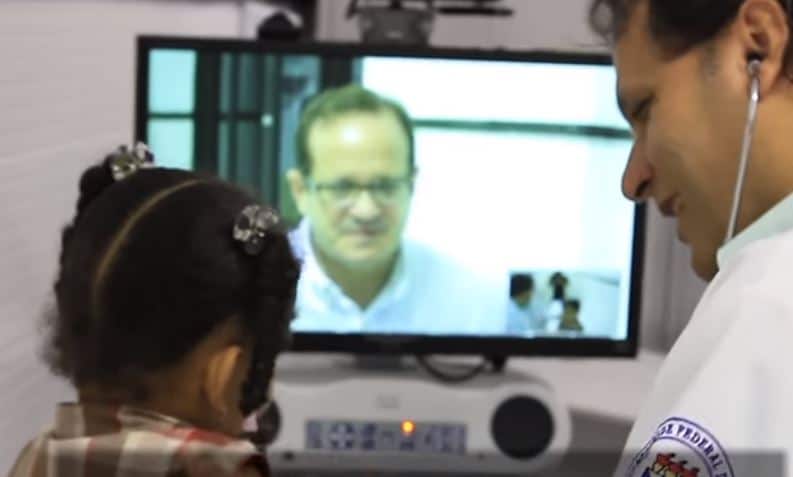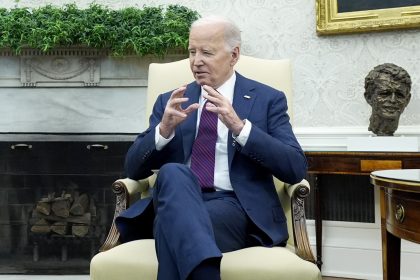Insurance Companies and FCC See Big Future in Telemedicine

WASHINGTON – Whether due to office closures, fear of seeking medical assistance during the pandemic, or simply for convenience, the nation has seen a rise in telemedicine over the last four months. While telemedicine isn’t new, barriers to adoption, such as security concerns or a lack of access and availability are waning and consumer appetites for virtual services are on the rise.
News website Axios brought together government and private sector players in the telehealth space to discuss the impact of the new tech trend on public and private care and its potential to disrupt the future of healthcare. Oscar Health CEO Mario Schlosser, Ro CEO Zach Reitano, and Chairman of the Federal Communications Commission Ajit Pai were optimistic about telehealth’s promising future.
“I would fully expect the future of the health care system… to remain at a larger degree more virtual than it has in the past,” said Schlosser. Oscar, an online insurance company founded in 2012 and available in limited parts of the country, was the first insurer to make telemedicine free of charge to its members. The network’s telemedicine doctors continue to provide virtual visits in a number of medical fields, including consultations to determine COVID-19 risk and direct members to testing.
According to Schlosser, there’s a “big chunk of healthcare that you can virtualize.” For years, telehealth’s primary purpose has been prescription refill, but based on Oscar’s data, Schlosser believes that behavioral health may be its next significant takeover share, with 60% of Oscar patients’ visits shifting online during the pandemic. Advice on chronic conditions, like diabetes, cancer, or heart disease also experienced a considerable 40-50% shift to virtual.
“A blended approach is best… Obviously some visits must be in person,” said Schlosser, citing surgeries and maternity care visits. But given that emergency room visits decreased by 40% (and visits with kids are down 80%), the data has shown many ER visits weren’t true in-person emergencies. Schlosser believes that the transition to telehealth over the last few months wasn’t solely due to COVID-19, but is a shift in utilization that should otherwise have happened on its own.
Ro’s Reitano agrees. “There are too many patients and too few providers,” he said. And he believes Ro’s “cash pay national digital doctor’s office and pharmacy” can help change the ratio, leveraging an expert labor force to empower providers and allow them to treat more patients.
He echoes Schlosser’s sentiments that telehealth is “a complement, not a replacement,” and insists that the pandemic brought to light problems that have existed in America’s healthcare system for some time. We need to “eliminate unnecessary in-person visits and unburden the health care system,” Reitano said. Furthermore, he’s pushing telehealth to be “a catalyst to improve racial and geographic inequities.”
The federal government has already taken some steps toward remedying these disparities as well.
“Telehealth broadens health care access and outcomes,” said FCC’s Pai. “It’s a really powerful way to extend the expertise of some of our greatest health care professionals in this country.”
He contends that even health care clients that may balk at telemedicine because of tech fears will come to see that virtual visits save time and effort. He also suggests the absence of a need to take off work or secure childcare as a strong benefit to consulting a professional through telehealth.
Pai’s advocacy extended to support for telehealth in the Congressional CARES Act relief bill, and the FCC’s immediate distribution of $200 million in funds to 539 institutions providing a variety of telemedicine care in 47 states, Washington, D.C., and Guam.
While bridging the digital divide is often presented as a telehealth challenge, Pai is using what he calls “digital opportunities” to overcome some of the obstacles and give “every person in this country who might not be able to go to a brick and mortar healthcare facility, for whatever reason, give them access through… broadband connections.”
This has come in the form of $20 billion for the Rural Digital Opportunity Fund to extend broadband digital access to up to 6 million locations in rural America; a $9 billion 5G Fund that provides incentive for private 5G investment in underserved parts of the country that would otherwise be unlikely to receive 5G capability; a $100 million Connect Care Pilot Program that allows chronic care patients to make use of wearable tech and wireless sensors to track their vital statistics in real-time and provide assistance without waiting for symptoms to devolve into an emergency condition; and the FCC decision to open and make available more broadband spectrum so that smaller wireless carriers can extend wireless access to certain parts of the country.
























